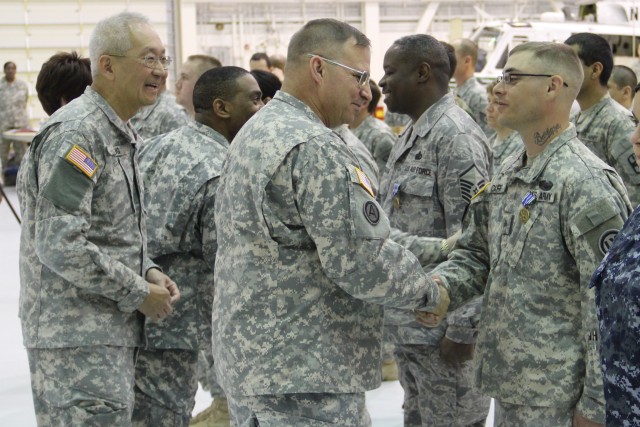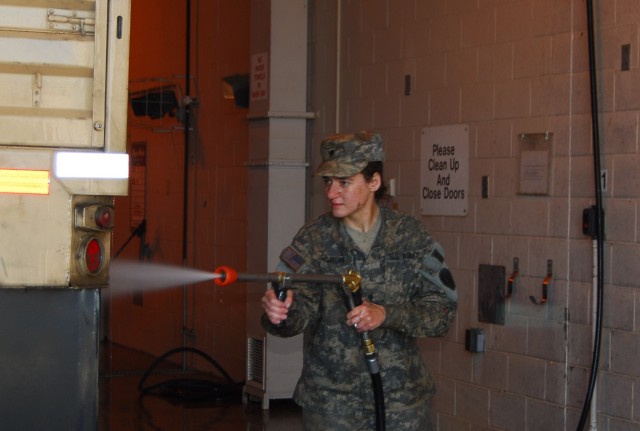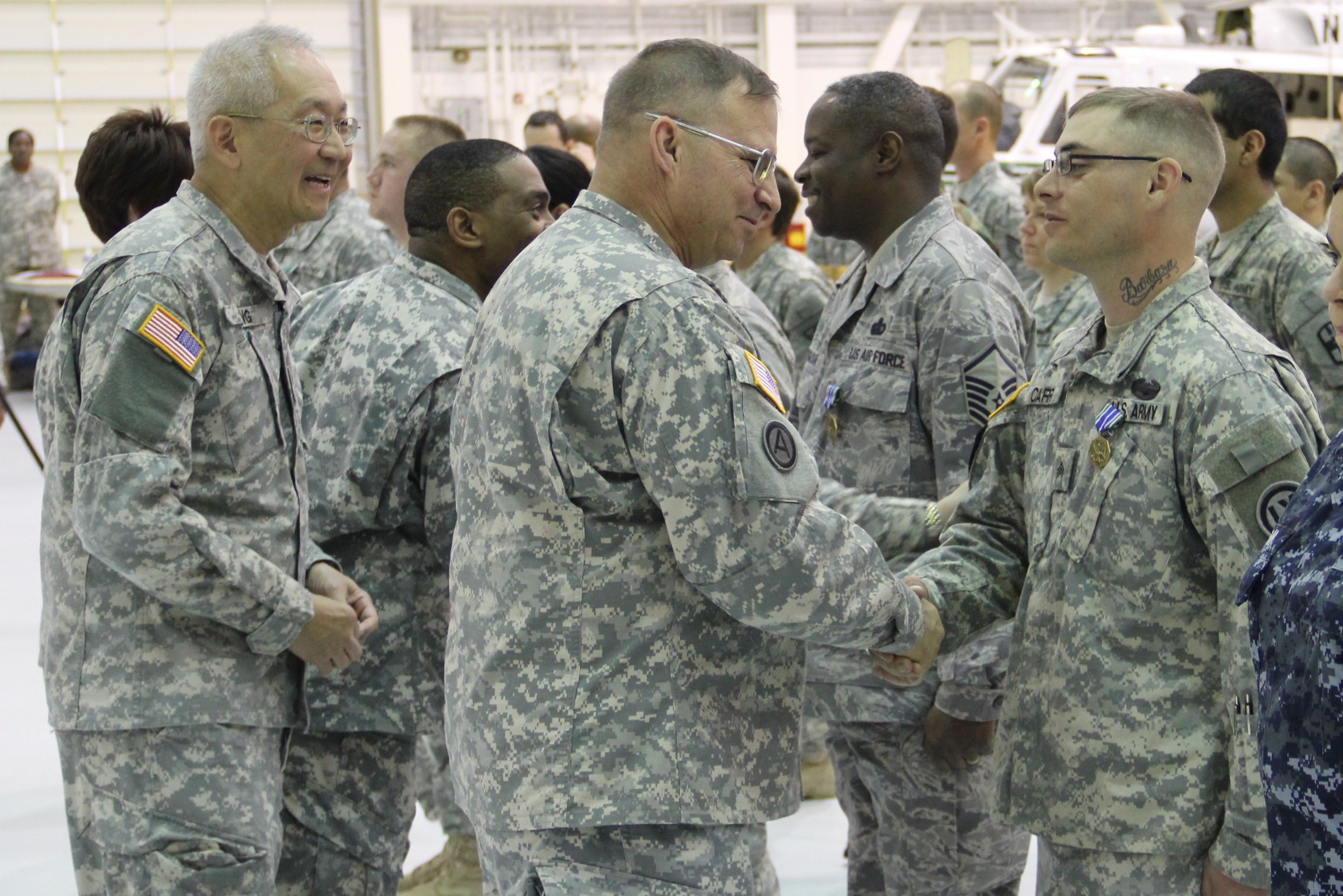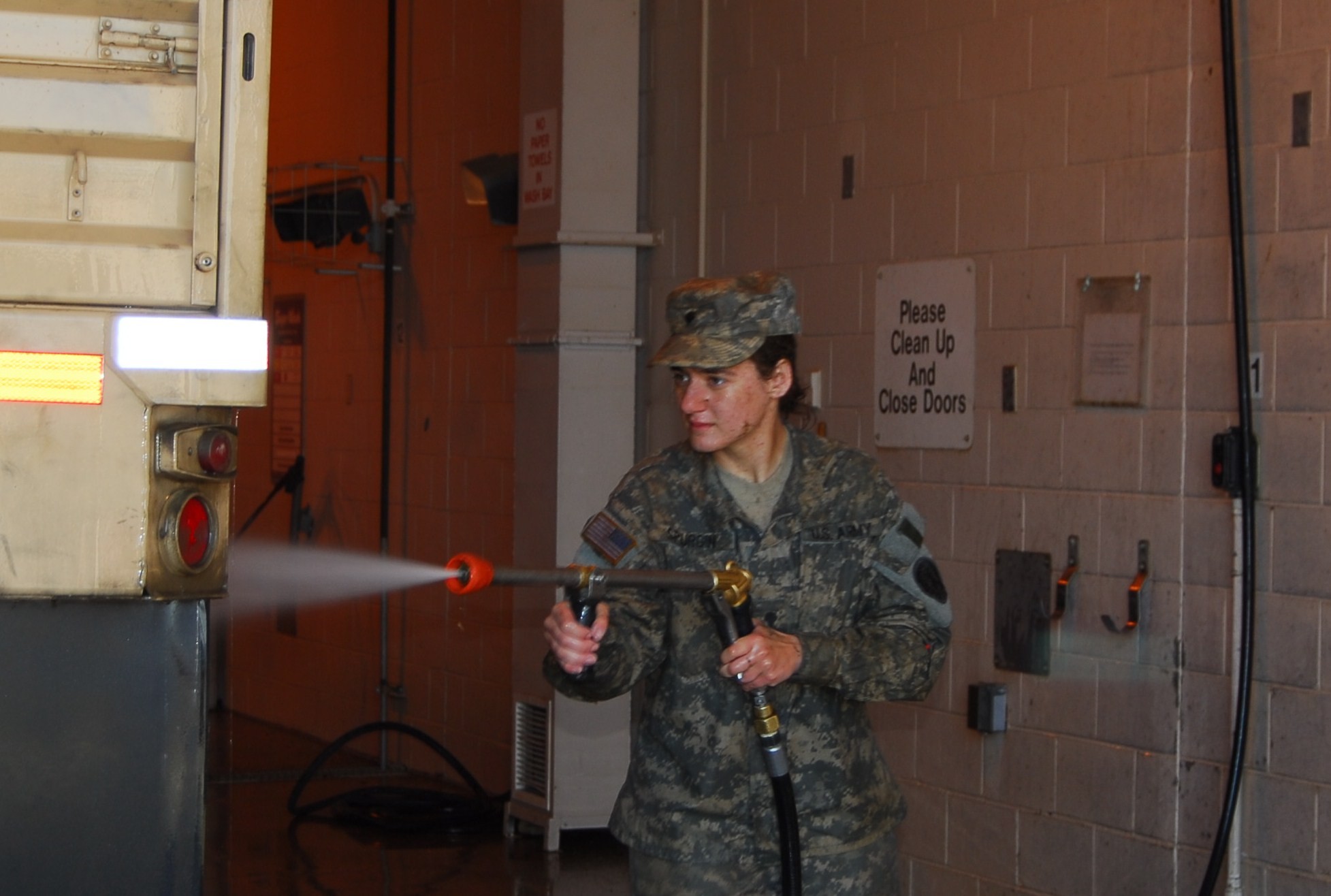FAIRBANKS, Alaska - A small team of six U.S. Army Reservists with the 9th Mission Support Command's 297th Engineer Company was tasked with a large mission in support of Operation Arctic Care 2011 - to provide the only mode of transportation to remote villages in the Tok sub-region of Alaska.
Arctic Care is an annual operation that brings together approximately 320 service members and civilian personnel to provide more than 13,000 rural native Alaskans with medical, dental, veterinary and optical care.
Using light medium tactical vehicles, the team of Reservists transported 38 personnel and their equipment from Fairbanks over a two-week period.
"If it wasn't for that team of drivers, my mission wouldn't have happened," said Capt. Myong Yi, 807th Medical Command (Deployment Support) and officer in charge of Arctic Care team five. "If anyone on my team deserves kudos, it's those Soldiers. I couldn't have asked for a better group."
Initially the mission was only to drive to and from the distant locations. But on the first day when the Reservists made it to the base operations center located at the 9th MSC's Reserve Center, here, they soon realized they were needed for more than just transporting.
"When we got in the first night, we saw that the team was really behind," said Staff Sgt. Matthew Carr, noncommissioned officer in charge of the 297th team. "The first few days of any mission are tough. My team stepped up to help inventory equipment and get it loaded onto pallets to be shipped."
Yi explained the team did everything from pull guard duty and cook to even helping out in the clinics and still made time for their mission.
"We were out in the field for 12 days," said Yi. "Eight of those days the team was making the seven-hour trip to Fairbanks for supplies. And they still made time to go between the villages dropping off and picking up supply and personnel."
The Soldiers braved austere weather conditions and traveled off-road, for sometimes 20 miles, to reach the far-off villages.
"We traveled for miles between the villages," explained Carr. "Tetlin, for instance, was about 60 miles northwest of Northway on the main road, but we still had to travel off-road for 20 miles to deliver the goods. It was a pretty long and rough ride."
Despite the rigorous travel and work, the team stayed in good spirits.
"I had a really great team," said Carr. "Everyone had great attitudes, stayed motivated and was willing to help where needed."
The selfless work of the Soldiers did not go unnoticed. Carr, along with Spc. Benjamin Jimenez, were both recognized by Lt. Gen. Jack C. Stultz, chief of the Army Reserve. The Soldiers were awarded an Army Achievement Medal and the three-star general's coin, respectively, for their outstanding service.
Spc. Mart Bregger was awarded a two-star general's coin from Maj. Gen. Lie-Ping Chang, commander for the 807th MDSC.
"I am extremely proud of the Army Reserve LMTV drivers who hauled supplies and equipment to the villages in the Tok sub-region," said Brig. Gen. Michele Compton, commanding general for the 9th MSC. "Army Reserve LMTVs were the primary means of transport during the operation and were absolutely critical for providing healthcare to the Alaskan natives."






Social Sharing